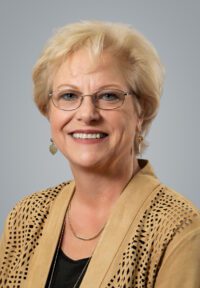
Annie Armstrong Easter Offering
Learn about the Annie Armstrong Easter Offering
Dates: (The official date is the first Sunday in March through the second Sunday. Your church can choose this date or another time during the Easter season to participate.)
The Mission Moves Forward
North America is a mission field of complex cultures and diverse religious practices. Missionaries here face challenges from secularism to language barriers to a historic health crisis. Yet, in spite of the obstacles, God’s mission always moves forward. Your partnership helps make it possible.
The North American Mission Board (NAMB) exists to help every church take its next step in missions and encourage every believer to live on mission. NAMB’s mission field is the U.S., Canada and the U.S. territories of Puerto Rico, Virgin Islands, Guam and American Samoa. This region contains diverse ethnic groups, languages and religions. Approximately 275 million people in North America do not have a relationship with Jesus Christ.
NAMB helps plant churches everywhere in North America with a special emphasis in cities where more than 80 percent of North Americans live. Missionaries focus on reaching multiple international and native people groups. Another focus is planting churches for military communities and near college campuses.
In 2016, NAMB launched Send Relief. Just as Southern Baptist Disaster Relief matches urgent needs with volunteers who bring help, Send Relief is expanding that to equip churches in addressing poverty, refugees, foster care and adoption and human trafficking. We’re now establishing Send Relief regional ministries to meet needs and offer long- and short-term volunteer opportunities. We are truly grateful for the prayer support and sacrificial giving of every Southern Baptist. Please be assured that we are committed to being the very best stewards with every dollar we receive.
- How Your Gifts Resource Missionaries
- $5 Bus fare for travel in the local community
- $25 Meal with an unreached person
- $85 Subscriptions for training resources
- $100 Anniversary gift for a missionary couple
- $300 Training and conferences for church plant’s wife
- $500 Neighborhood outreach event
- $1,000 Emergency travel assistance for missionary family
- $1,200 Bibles, gospel tracts and discipleship materials
- $1,400 Monthly worship facility event
100% of your Annie Armstrong Easer Offering gifts support thousands of missionaries in church planting and compassion ministry.
- How Your Gifts Resource Missionaries
In the late 1800s, women were not expected to be leaders, to speak up, to be visionaries . . . But Annie Armstrong was never concerned with what the world expected.
Annie was born in Baltimore in 1850. Her father died when she was an infant. Her mother, a devoted Christian, encouraged her five children to see the needs around them and to act.
With fervency, Annie dedicated her life to sharing Christ through compassion ministry to orphans and the poor. Her boldness soon helped unite the missions movements that had already begun in the states.
Annie and women from several states started a “missionary union” at the national level. Despite opposition to women organizing by male SBC leadership, national Woman’s Missionary Union® (WMU®) was formed in 1888. Churches across the U.S. were now linked in their missions’ efforts, with Annie as WMU’s first executive leader.
Traveling throughout the United States and frontier, Annie encouraged missionaries and challenged churches. She rallied women to pray, give to the missions offerings, and teach their children to do the same. She was a fierce advocate for the needs of immigrants and Native Americans and was instrumental in the appointment of the first black female missionaries.
Annie often toiled long into the night writing to pastors and SBC leaders. In one year alone she hand-wrote 18,000 letters. She sacrificially refused a salary, expressing she would, “never give to the Lord that which costs me nothing”(see 2 Sam. 24:24).

